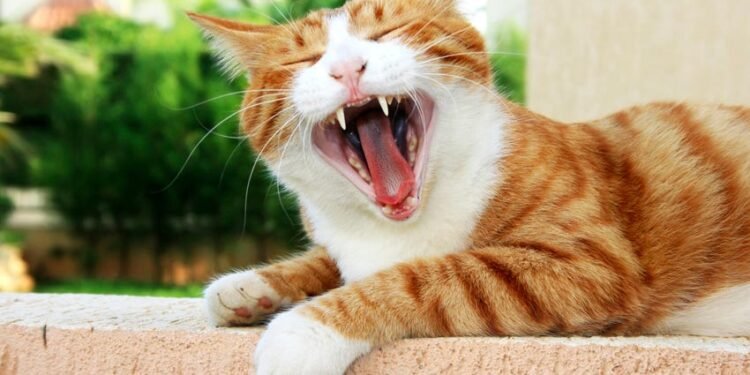Caring for your beloved feline companion goes beyond providing them with food and shelter. One crucial aspect of their well-being is often overlooked but shouldn’t be, oral home care. Just as humans need to brush their teeth regularly, our furry friends also require attention to their dental hygiene. While brushing your cat’s teeth is considered the gold standard in maintaining oral health, not all cats cooperate in this task. So, what can you do if your feline friend isn’t a fan of the toothbrush? This article will explore alternatives to brushing and why they are essential in preserving your cat’s oral health. Let’s start to discuss how to clean cat teeth without brushing?
The Importance of Brushing Your Cat’s Teeth
Picture the dental issues if we neglect our dental hygiene as humans. The same applies to our cats. Without regular brushing, professional dental cleanings, and proper at-home care, plaque accumulates and eventually hardens into a stubborn substance known as calculus or tartar. This plaque buildup starts with bacteria colonization and can form minutes after a meal.
Unfortunately, only a professional pet dental cleaning can effectively remove calculus.
Over time, plaque and calculus can lead to painful mouth conditions, fractured teeth, and tooth loss. Shockingly, up to 85% of cats and dogs develop some form of periodontal disease by age two. Therefore, early initiation of comprehensive oral care is crucial for your pet’s dental health.
How To Clean Cat Teeth Without Brushing?
While nothing quite compares to the effectiveness of brushing your cat’s teeth, it can be a challenging task for many felines. The key to success is starting oral home care early in your pet’s life.
Fortunately, there are alternatives to toothbrushing that can contribute to maintaining a healthy oral cavity. These alternatives include dental treats, diets etc. While it may not replace brushing entirely, it can be valuable components of a multi-modal oral care routine.
Dental Treats & Dental Diets
Cats have 30 adult teeth, characterized by their pointed structure without flat surfaces like human teeth. Being obligate carnivores, cats primarily consume protein-based diets and don’t chew extensively. Their sharp teeth are designed for capturing and consuming prey in the wild.
In the absence of natural prey, dental treats, and diets can play a crucial role in keeping your cat’s teeth clean. These products provide a mechanical chewing action with their firm texture, effectively removing daily plaque buildup. Some treats and diets even contain natural ingredients that prevent plaque formation and adhesion to the teeth. Additionally, certain products have anti-calculus agents to inhibit plaque mineralization, while others possess antimicrobial properties to eliminate harmful microorganisms.
It’s worth noting that dental diets and treats may not effectively benefit the incisor and canine teeth, as these serve different purposes in a cat’s eating process. However, they are particularly useful for the cheek teeth, which handle the chewing and grinding during eating.
For cats with tooth resorption issues, avoiding larger kibble and treat sizes is advisable, as these may lead to swallowing food whole, causing discomfort and vomiting.
Final Words: How To Clean Cat Teeth Without Brushing?
In conclusion, maintaining your cat’s dental health is vital to their overall well-being. While brushing remains the most effective method, alternative oral care options such as dental treats and diets can significantly contribute to a healthier oral cavity. Start early, choose the right products, and consult with your veterinarian to ensure your feline friend enjoys a pain-free and happy smile throughout their life.
Incorporating these alternatives into your pet’s routine can make a significant difference in their oral health, providing them the care they need even if they’re not too keen on traditional brushing. Remember, a healthy mouth equals a happy cat!




